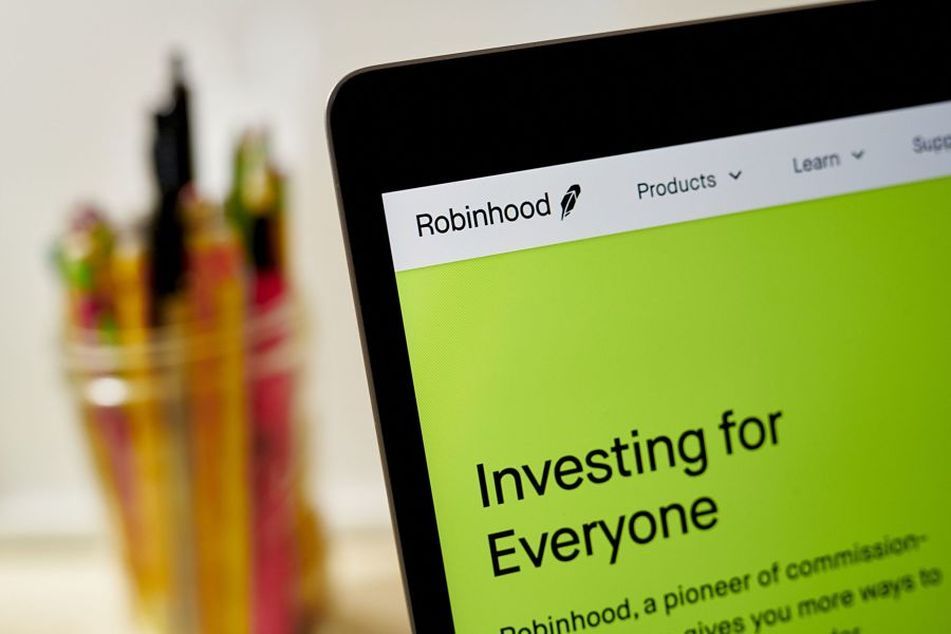Robinhood drops the confetti, but advisers aren’t convinced

Robinhood's confetti animation led to heavy criticism of its gamification tactics, but advisers say investor education is still what's needed.
After a bleak start to the year following the Gamestop stock surge and having multiple lawsuits filed against it, free trading app Robinhood Markets updated its application program interface to calm recent accusations that it was engaged in market manipulation and gamification.
This week millions of Robinhood users may have noticed that the celebratory confetti graphics that used to rain down after each trade have been replaced with images of floating geometric shapes, according to an announcement from the company last Wednesday. Robinhood also changed the images it displays when a customer signs up for premium service Robinhood Gold or deposits money on the app.
The app’s infamous confetti graphic garnered heavy criticism of its gamification strategy during a Feb. 18 congressional hearing where Chief Executive Vlad Tenev testified.
In December, William Galvin, Massachusetts’ secretary of the commonwealth, had slapped Robinhood with charges over its gamification strategy.
Robinhood’s lawyers filed a response to the charges filed against it in January, and there is an April 7 hearing scheduled for a judge to rule on Robinhood’s motion, Galvin’s spokeswoman Debra O’Malley said. No hearing on Galvin’s charges will be scheduled until after a ruling on the motion Robinhood filed, she said.
Financial advisers are facing the fallout from clients who are just now realizing that there are tax repercussions depending on how much they traded online in 2020, said Dan Herron, an adviser at Elemental Wealth Advisors.
“I’m experiencing the tax nightmares on the back end of this issue,” he said. “Changing confetti to triangles — tomatoe, tomato to me. Robinhood needs to have some skin in the game and beef up their guardrails.”
Robinhood’s minor redesign is “placing a Band-Aid over its troubles,” said Tricia Rosen, owner of RIA Access Financial Planning. “There are much more significant problems with investors using the Robinhood app than receiving a burst of confetti when they place a trade for the first time.”
For example, Robinhood fails to highlight warnings about wash sales, which buries the consequences related to decisions that beginner investors can make on the app, Rosen said.
To be fair, Robinhood does have a wash-sales disclaimer on its website, but finding it takes some work. A user would have to go to the website’s “Help Center,” click the “Investing” tab, and then click the “Investing with Stocks: Special Cases” option to see Robinhood’s three-sentence description of wash sales.
“The confetti design is similar to marketing for cigarettes,” Rosen said. “Marketing isn’t a bad thing, but the real problem is using the product and not understanding the harm it can do to you.”
While Robinhood touts its goal of democratizing investing for all by leading the way in transitioning the brokerage industry from explicit trading commissions to free trades, the app’s trades “are not actually free,” said Noah Damsky, principal at Marina Wealth Advisors.
“The appearance of free trades has galvanized a generation of investors on the Robinhood platform that were previously sensitive to explicit transaction fees,” Damsky said. “I don’t think that eliminating confetti fixes the gamification of the Robinhood platform because the ‘free’ trading costs are driving user activity; confetti was just the scapegoat.”
Robinhood ditching the confetti is likely one in a series of moves to repair the damage to its reputation and appease regulators ahead of its initial public offering, said Sophie Schmitt, senior analyst with Aite Group.
“Robinhood is pursuing an aggressive strategy focused on portraying them as a more human company — sharing genuine stories about employees and expressing to the world that their intentions of democratizing investing and watching out for the little guy are authentic,” Schmitt said. “This move to be more authentic and transparent will likely do more to help the firm regain investor and regulator confidence than replacing the confetti.”
Robinhood also has plans to build a platform to allow users to buy into IPOs, including its own.
It’s notable that Robinhood is playing defense, realizing that it has a problem that extends beyond public relations, said William Trout, Javelin Strategy’s head of wealth management.
“While removing confetti and other forms of eye candy may be a sop to the regulator, it changes very little,” Trout said. “If anything, it’s the duller-than-dishwater experience of most financial platforms that has opened the door for dynamic and engaging platforms like Robinhood and Stash Invest to thrive.”
techSTACK$ hosts on using social media for prospecting
Learn more about reprints and licensing for this article.








